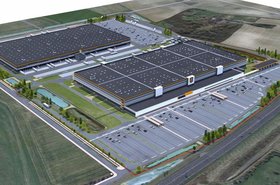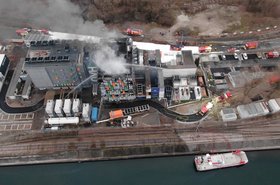France’s state-owned railway operator Société nationale des chemins de fer français (SNCF) has launched a new subsidiary to offer fiber services.
The railway company has laid almost 20,000km of optical fibers alongside train tracks, and the new Terralpha subsidiary will offer excess fiber capacity through partnerships. The new company will sit under SNCF’s SNCF Réseau unit.
“From 2021, Terralpha will be able to to offer Ultra High Speed transport of data to its customers and partners, such as fixed and mobile network operators, hosting providers and data center operators, large manufacturers,” the company said in a statement.
Terralpha will be able to offer several terabits per second per link through DWDM (Dense Wavelength Division Multiplexing) transmission technology. The company plans to roll out the service gradually over the remainder of the year; starting around Paris, before moving to Toulouse, Lille, and Valenciennes, then Lyon, Marseille, and Bordeaux.
“This unique network on the national territory, linked to its full ownership along railway arteries, gives it resilience, security and unprecedented sovereignty,” the company said.
“We demonstrate, with the creation of this subsidiary, that innovation and inventiveness are at the heart of SNCF Réseau's DNA,” said Luc Lallemand, Chairman and CEO of SNCF Réseau. “We wish the best to our new subsidiary, Terralpha and its management team, who can count on our commitment to them.”
L’usine Nouvelle reports that Paris-Lille-Valencienne connections to the east and Paris-Toulouse to the west have already been operational for a few months, and the company plans to roll out the service through more than 30 cities over the coming years.
Telecoms.com reports that SNCF, like many other rail operators, has replaced old copper cables with fiber to support its own connectivity needs, and is now looking to monetize the excess capacity.
Earlier this year, the UK’s Network Rail invited private sector companies to invest up to £1 billion in the rail telecoms network in return for the right to commercialize spare capacity on that network.





